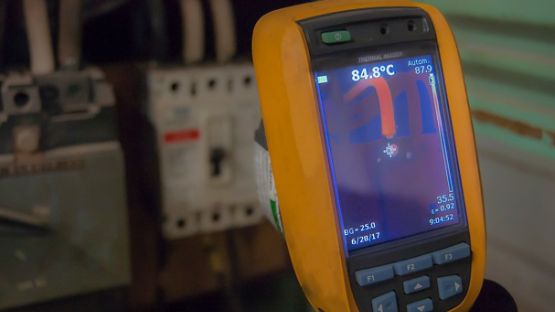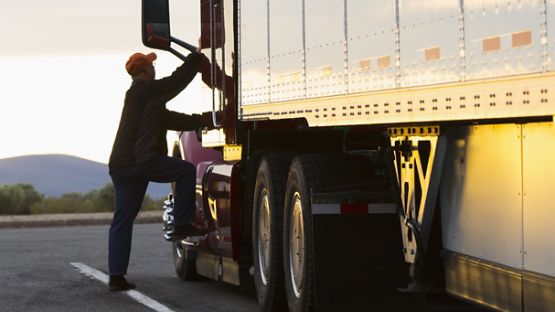Over the past few years, there has been growing concern about the rise of US-based "nuclear verdicts" in civil litigation claims. In 2023, a report found that the trucking industry was at the top of the rising number of judgments in excess of $10 million against corporations.
The Institute for Legal Reform examined 1,376 nuclear verdicts worth over $10 million from 2010 to 2019 and found that 1 in 4 auto accident trials that resulted in a nuclear verdict involved a trucking company1.
It’s clear that carriers with vehicles that travel in the US need to be on high alert to prevent and avoid a nuclear verdict.
What is a nuclear verdict?
Nuclear verdicts are exceptionally high court awards or settlements, generally exceeding $10 million. These verdicts are often seen in claims where the plaintiff has suffered a life-altering injury or where the defendant's actions were particularly egregious.
There are many factors that can contribute to a nuclear verdict, including the severity of an injury, the emotional impact on the jury and the conduct of the defendant. Juries also tend to punish trucking companies for putting profits ahead of safety or failing to take appropriate action to prevent harm.
For trucking companies that find themselves on the wrong end of a large verdict, the financial consequences can be dire and may lead to bankruptcy. Nuclear verdicts can also have a significant impact on a company's reputation and brand. Large verdicts can lead to negative media coverage and damage the public's perception of a company, potentially leading to a loss of customers and business.
How to avoid liability and prevent nuclear verdicts
It’s important that a company can prove it has done everything possible to prevent serious collisions. Here are six steps that can be taken to avoid nuclear verdicts:
1. Develop an effective hiring policy
One of the leading causes of collisions that lead to nuclear verdicts is negligent hiring practices. Employers often fail to conduct comprehensive background checks on prospective employees and don’t verify their drug and alcohol history, sometimes even skipping drug testing upon hiring a new employee. These failures could sway a jury if the driver had previous drug or alcohol related offences.
Developing a hiring policy can be helpful to promote a safety-driven culture and hold the company accountable to maintain compliance.
2. Prioritize compliance
It’s crucial for companies to maintain a high level of compliance not only with commercial regulations but also with their own internal safety policies. By complying with these regulations, companies not only ensure adherence to the law but also prevent accidents, reduce risk and protect their employees and the general public. It also demonstrates a company's commitment to ethical business practices.
It's not enough to monitor business compliance; it must be actively managed. Implement a system that can identify developing trends that could have a negative impact and take proactive measures. Consistently reviewing your safety profiles, including both Canadian and the US Federal Motor Carrier Safety Administration and Safety Measurement System sites, is crucial. When reviewing transportation violations, verify that they are associated with your company. If you identify any anomalies, challenge them using Data Q's.
Companies should also investigate other violations or events on the profiles and understand their root causes. This will enable you to implement corrective measures to reduce future liability and risk.
3. Offer regular safety training
Safety training during driver onboarding is not sufficient. A regular training schedule should be an integral part of a company's safety program to keep employees informed and up to date on safety procedures. This can help prevent accidents and reduce the likelihood of major events.
4. Investigate all trucking collisions
When there is a collision with a vehicle or other object, even a minor one, it’s critical to investigate the circumstances to help determine the cause. This involves gathering evidence from the scene of the collision, examining physical damage to vehicles, analyzing skid marks and other tire impressions, and interviewing witnesses.
The goal of collision investigation is to identify the factors that contributed to the accident, such as driver error, equipment malfunction or environmental conditions in order to prevent similar trucking accidents from happening in the future.
5. Understand your telematics data
It’s not enough to have telematics from your drivers — you need to understand the data it generates and use it to identify early trends so that proper corrective action can be adopted and implemented to maintain safety. Analyzing driving habits such as speeding, harsh braking and sharp cornering can offer valuable insights and help anticipate risk and prevent potential issues before they escalate.
6. Insist on pre-trip safety inspections
In a Canadian commercial vehicle blitz conducted by the Commercial Vehicle Safety Alliance in May 2023, more than 20% of the vehicles inspected were placed out of service. Many of these could have been avoided with a proper pre-trip inspection.
It’s important for carriers and operators to ensure that pre-trip inspections are part of every driver’s shift. This means paying drivers for the full 45 minutes to 1 hour that it takes to make sure their truck is safe to drive on the road. Having a properly functioning vehicle goes a long way to avoiding a nuclear verdict in the event of a serious collision.
Want more information about actions you can take to avoid nuclear verdicts?
Aviva Risk Management Solutions has professional risk consultants across Canada who can provide expert advice to help improve safety and prevent collisions that could result in nuclear verdicts. Reach out to Aviva’s Commercial Fleet Specialists.
Sources:
1 Casualty: Emerging liability risks for your business | Aviva Canada
Trucking leads growth in nuclear verdicts | Transport Topics News
Canadian Roadcheck inspections ground one in five vehicles | Trucknews.com













